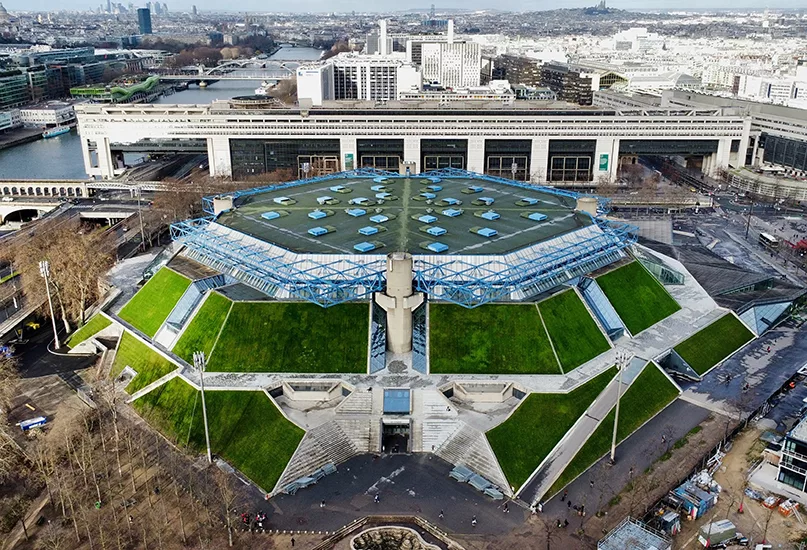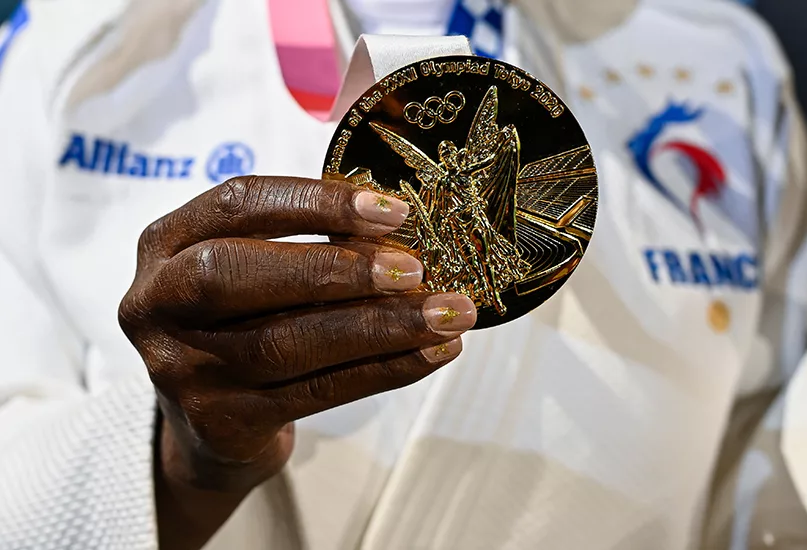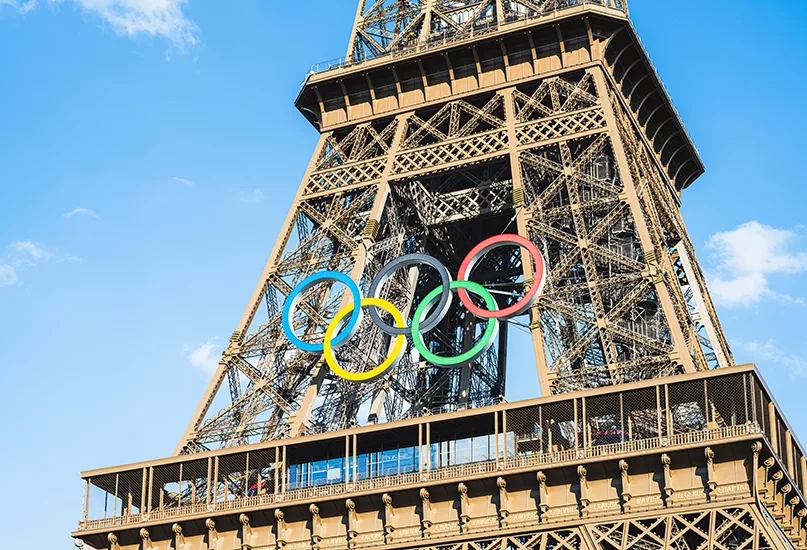Every four years, the Olympic Games, the world’s largest sporting event, captures the attention of global audiences. This year is no different, as host city, Paris, is setting an inspiring example by implementing a landmark sustainability strategy.
SUSTAINABILITY FOR THE WIN
As the city prepares to welcome over 10,000 athletes and an estimated 500,000 spectators, hosting the Paris 2024 Olympic Games (Paris 2024) is no mean feat. Known for its ability to unite countries and people, the much-loved event is arguably the most important in the global sporting calendar.
In a bid to establish a better world through sport, this year’s Games are underpinned by a Legacy and Sustainability plan outlined by the International Olympic Committee (IOC), alongside other constituents and stakeholders of the Olympic movement.
Built around two focal points – to set an inspiring global example and leave a social and environmental legacy – the strategy comprises six pillars, made up of actionable steps towards impactful change.
Heralded as potentially the greenest Games in history, Paris 2024 is not to be missed.
HARNESSING SUSTAINABLE SOLUTIONS
The first of the IOC’s pillars outlines steps towards an eco-responsible Games that harness sustainable solutions to guarantee a positive impact on the climate.
This includes following the widely accepted Avoid, Mitigate, Offset (AMO) approach, which seeks to minimise environmental impacts by integrating low-carbon solutions.
As an example, this year’s Games will use biofuels instead of oil to power the Stade de France, saving an estimated 13,000 tonnes (t) of CO2 emissions. To offset unavoidable greenhouse gas (GHG), the IOC will also invest in socially and environmentally beneficial projects.
Paris 2024 has gone further than the existing AMO approach by adding two of its own, innovative steps to the framework – anticipate and catalyse action.
The former utilises an IOC-designed tool to estimate the Games’ potential carbon impact and inform the responsible use of resources.
The latter strives to harness sport as a driver of progress for the environmental transition during Paris 2024 by raising awareness of and sparking conversations around sustainability.
The importance of recognising, protecting, and regenerating biodiversity is also emphasised across the locations where the Games are taking place. Not only will this positively impact local biodiversity for years to come, but practicing athletes will directly benefit from initiatives in place to reduce air and water pollution.
For example, the Seine has been cleaned and filtered for triathlon, marathon swimming, and paratriathlon events, benefiting the river’s ecosystems as well as providing optimum conditions for competitors.
Finally, simple and efficient resource management will be implemented as a priority, making use of existing sports venues to avoid the needless construction of new ones. For instance, cyclists are set to race at the Saint-Quentin-en-Yvelines velodrome, built 10 years ago, and fencers will face off at the Grand Palais, constructed in 1900.

AN ENVIRONMENTAL TRANSFORMATION
Another of Paris 2024’s pillars will utilise sport as a lens through which to drive environmental transformation. To achieve this, the IOC has proposed proactive strategies and actions.
These include accelerating the sustainability of other international sporting events by making the methods developed for Paris 2024 accessible and usable elsewhere, feeding into the IOC’s overall aim to leave a lasting legacy and set an inspiring global example.
In this way, the 54-hectare Olympic Village in Seine-Saint-Denis, set to house around 15,000 competitors, has used 94 percent recycled materials in its construction, such as wooden buildings for athlete accommodation, low-carbon concretes, and flexible structures. Such construction processes and materials use around half as much carbon as typical building practices.
In addition, when the Games are over, furniture from the Olympic Village and its accommodation will be resold, donated, or recycled, including 42,000 chairs, 10,000 office tables, 6,000 shelves, and 800 workstations. The site will also be turned into apartments and offices to make use of the infrastructure.
“Actions we’re taking now at the Olympic Village feed into Paris’ 2030 sustainable development goals.
“Because we can achieve this for the Olympic Village, it can also be done elsewhere in France, and further afield. That’s what we are proving,” confirms Nicholas Ferrand, CEO of SOLIDEO – the public sector organisation tasked with the development and redevelopment of infrastructure for the Games.
An environmental transformation at Paris 2024 is also hoped to be achieved by sourcing seasonal, locally produced food for spectators and athletes alike. This is considered a low-carbon solution, as at least 25 percent of all food served will be sourced within 250 kilometres of Paris, limiting transport emissions.


FIRST PLACE FOR ZERO WASTE
Finally, in line with its mission towards environmental responsibility, the IOC has implemented a range of zero waste and recycling solutions for Paris 2024.
For example, the committee is working to eliminate single-use plastics by implementing alternative solutions, such as recycled and reusable plastic bottles. The IOC has also removed single-use plastics at its headquarters, leading by example and encouraging the entire Games’ ecosystem to do the same.
Further to this, thousands of seats at the Adidas Arena have been built from recycled plastic, collected from the city’s municipal recycling bins and reformed via thermocompression.
Place de la Concorde, an iconic venue in the heart of Paris, is a temporary venue that will host BMX and skateboarding events, amongst others, sharing resources for multiple events in one location. The temporary grandstands will also be reused for the Paralympic Games soon after, whilst the venue is set to be completely restored to normal use following the event.
The Tokyo 2021 Olympic Games set a new bar for sustainability, as athletes slept on recycled cardboard beds, podiums were made out of recycled plastic, and medals were forged out of discarded electrical devices. However, through its Legacy and Sustainability plan, Paris endeavours to take up this mantle.
With plans to halve the carbon budgets of the Rio and London Games by emitting 1.5 million fewer t of CO2, Paris is set to surpass the emissions targets of even the Tokyo Games, which had no spectators due to the pandemic.
As such, thanks to its comprehensive approach to proposing feasible, proactive, and well-planned sustainable strategies, the world could be on track to witness the greenest Olympic Games in history.



















